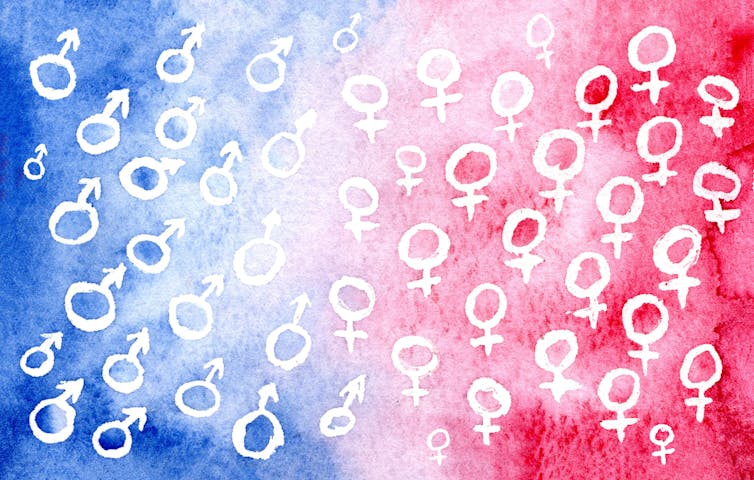
Experts in autocracies have pointed out that it is, unfortunately, easy to slip into normalizing the tyrant, hence it is important to hang on to outrage. These incidents which seem to call for the efforts of the Greek Furies (Erinyes) to come and deal with them will, I hope, help with that. As a reminder, though no one really knows how many there were supposed to be, the three names we have are Alecto, Megaera, and Tisiphone. These roughly translate as “unceasing,” “grudging,” and “vengeful destruction.”
If anyone feels that today’s article coupled with my remarks constitute more of a personal rant than a political statement, I won’t disagree. However, if politics is to be regarded as a means of improving (and then maintaining and building upon those improvements – a proposition which seems to be losing suppport, but which should not be, then the personal Is political – is, indeed, the foundation of all politics. And it distresses me personally me that we seem to be going backwards, not only on this political point, but also on our cultural understanding of reality. I am not old enough to have see Christine Jorgenson in a movie, but I am old enough to have heard about her, and heard that she was a female soul (or person, or personality – I’m sure not everyone used the word soul – born into a male body. That made sense to me thenm and it still makes sense as an explanation, and still makes it quite clear that Christine had no choice in the matter. Yet, we were told then, and many of our worse, this youth are still being told today, that “gay” is a choice. Because “God doesn’t make mistakes.” No one appears to grasp the implication here -that, “No, God doesn’t make mistakes. You just think, in your arrogance, that you know what constitutes a mistake better than God does.” Dorothy L. Sayers knew better than that – in a novel published in the 1930’s, she has the character of a poorly educated farmer say of an elderly lesbian, “The Lord makes some on ’em that way to suit his own purposes.” These days, our “poorly educated” think they know better then their own all-knowing God.
=============================================================
Biological sex is far from binary − this college course examines the science of sex diversity in people, fungi and across the animal kingdom

Yifei Fang/Moment via Getty Images
Ari Berkowitz, University of Oklahoma

Uncommon Courses is an occasional series from The Conversation U.S. highlighting unconventional approaches to teaching.
Title of course:
Diversity of Biological Sex Characteristics
What prompted the idea for the course?
Most people view biological sex, or the physical features related to reproduction, as simple and binary – either male or female. Even those who recognize that gender – referring to cultural norms around biological sex, or a person’s internal feeling of being masculine, feminine or both – can be complex and nuanced don’t see biological sex in the same way. Many also regard variability in sex and gender as exclusive to people – not found in nonhuman animals.
I am a behavioral neurobiologist who has been teaching human physiology since 1998. Over the past several years, I have focused my reading and writing on the biology of sex. It struck me that many of my students had misguided assumptions about sex characteristics, including that all people are physically either 100% male or 100% female.
A course on biological sexual diversity in both nonhuman animals and people could challenge these assumptions.
What does the course explore?
First, we examine why sexual reproduction evolved in any species. This question is still hotly debated among biologists because sex is inefficient. It requires time and energy to find a suitable mate and unite your sex cells, plus it allows you to pass on only half your genes to your offspring.
In comparison, asexual reproduction – essentially cloning yourself – is much more efficient. You don’t have to find a mate, and everyone can produce offspring themselves because there are no males. In biology, “male” refers to an individual that makes small sex cells like sperm, and “female” refers to an individual that makes large sex cells like eggs.
Next, we explore nonhuman sexual diversity, including fungi that have thousands of sexes and aphids that reproduce asexually most of the year but sexually once each fall. Among many others, we also learn about fish that are male or female at different times of their lives; intersex crayfish; and female spotted hyenas that have a penis.
We then transition from nonhuman animals to people, via the brain. We learn about a few small brain structures in vertebrates that likely have reproductive functions and are differently sized in females versus males on average. We also learn that most people have some brain structures that are more typically male, others that are more typically female and still others that are intermediate – in other words, most people are mosaics of female-typical and male-typical brain sex characteristics.
Finally, we focus on the biological sex characteristics of intersex people. The chromosomes and reproductive organs of intersex people have some typically female and some typically male characteristics or are intermediate between them.
Students then build on their knowledge of the diversity of biological sex characteristics to discuss whether intersex infants should have surgery to “correct” their genitals, as well as who should be allowed to compete in girls and women’s athletics.
Why is this course relevant now?
Perhaps more than ever, there is a debate about how to treat people who do not fit neatly into a female or a male box. Many assume that biological sex is binary and regard transgender and nonbinary people as mistaken or confused. In addition, for many decades, intersex infants have undergone surgical procedures to make them appear more typically male or female. Even those who support transgender, nonbinary and intersex people often assume that biological sex is binary. But this assumption is not anchored in evidence.
What will the course prepare students to do?
Students often say that before they took this course, they had no idea biological sex characteristics could be so diverse, despite having taken several biology courses.
An improved awareness of the complexity of biological sex may help shape the research and teaching of future biologists. This will help them design experiments that take account of the diversity of their subjects and be more inclusive in their teaching. It may also help all students ask better questions and make better judgments about social and political issues related to sex and gender.![]()
Ari Berkowitz, Presidential Professor and Director of Graduate Studies, Biology; Director, Cellular & Behavioral Neurobiology Graduate Program, University of Oklahoma
This article is republished from The Conversation under a Creative Commons license. Read the original article.
==============================================================
Alecto, Megaera, and Tisiphone, that’s really all I have to say – and no doubt it’s more than enough.
The Furies and I will be back.
